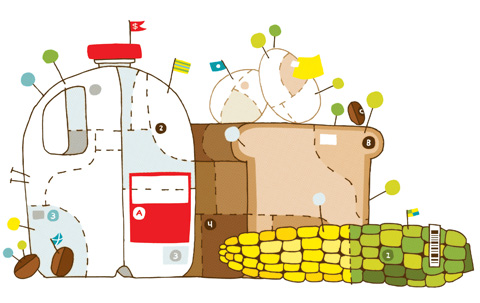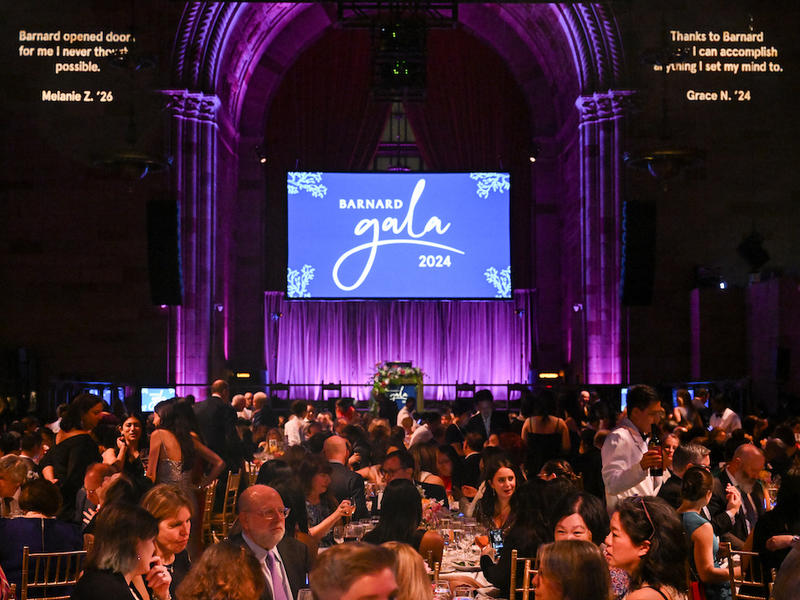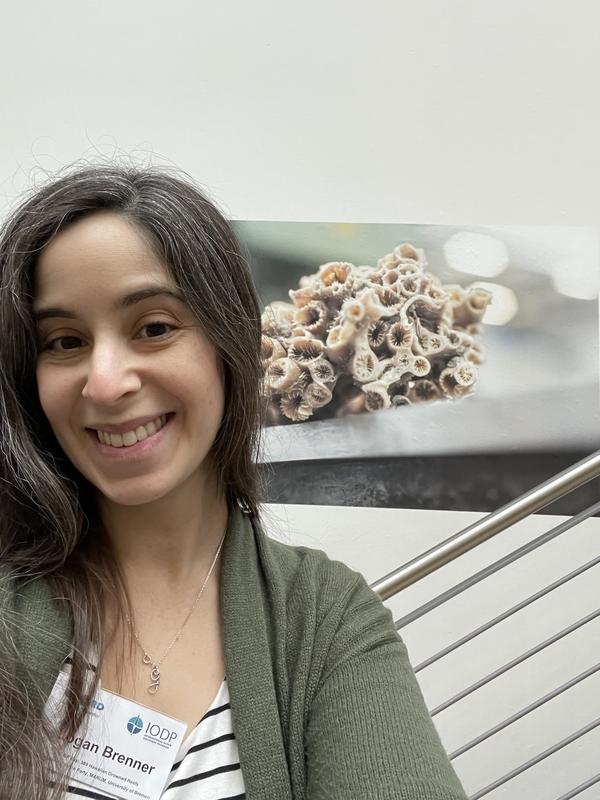“What’s for dinner?” is an increasingly loaded question, one that has little relationship to the relatively benign query our mothers and grandmothers faced. Consider the decisions that many of us confront nearly every day: what we choose to buy—organic? locally sourced? fair trade? sustainably harvested?; where we buy it—supermarket? farmers’ market? food co-op?; and how we prepare it. For many of us, the issue of feeding ourselves and our families has become an ongoing political debate.
“Much indeed does, depend on dinner,” said Elizabeth Castelli, professor and chair of the religion department and acting director of the Barnard Center for Research on Women, which sponsored the panel “What’s On Your Plate? The History and Politics of Food” this past November.
It wasn’t exactly the stuff of Food Network’s seductive recipes or glossy plates. Faculty members Kim F. Hall, Deborah Valenze, Hilary Callahan, and Paige West, explored some of the political, historical, and environmental issues around such basic staples as sugar, coffee, and milk, as well as genetically modified food, through wide-ranging and often provocative academic lenses.
For Kim F. Hall, the Lucyle Hook Chair and professor of English and Africana studies, the history of the banquet and sugar offer insight into economic relationships during the seventeenth century. The banquet in particular, “is a significant cultural and literary form in the seventeenth century that mediates desires about class, gender, and commerce,” she said. Hall noted that when sugar became cheaper, banquets became more elaborate. She also highlighted the discrepancy between the labor required to produce and bring to market the commodity and the illusion of ease that banquets suggested: “Wealth delivered without labor from nature, or from exotic, but domesticated people of color,” explained Hall, who’s currently working on a book about women, labor, and race in the Anglo-Caribbean sugar trade during the seventeenth century. The banquet and sugar enact a global fantasy that reinforces royal dominion over nature. The table, she said, “is an image of maritime control made entirely of sugar.”
Closer to our time, milk offers other insights into our ambivalent relationship to food, suggested Deborah Valenze, professor of history, and author of Milk: A Local and Global History, which was featured in the Salon section of the Fall 2011 issue of Barnard. Milk is, admittedly, “by, for, and about women,” said Valenze. “Milk originally comes from the breast,” she said, noting that the small statues and amulets of the goddess Isis nursing her son Horus depict the breast, “as a means of indicating sustenance.” Somehow, though, milk evolved from a remedy for “bodily ailments,” including “female problems,” to a more suspect substance before pasteurization, when milk sources were highly contaminated, sometimes by diseases like diphtheria and tuberculosis.
To Valenze, raw milk, the current craze, stands for “pure, unadulterated nature …it tastes like what we imagine the pastures that cows graze in taste like,” said Valenze. “People nowadays do seem to have had enough of modern food. Raw milk is a rebellion against all that. It raises a lot of questions about social class and the price of food … and how much we need to know about our food. Nowadays, there’s much more careful interrogation going on about how things got to the store.” Raw milk is a reminder about “how ambivalent we are about getting too close to nature,” said Valenze. “It’s a real tension.”
Other tensions—cultural, economic, and environmental—arise from the ways different foods are produced. Paige West, an associate professor of anthropology, has worked in Papua New Guinea (PNG) for the past 15 years, and has studied many groups including a coffee-growing community. In PNG, 86 percent of the coffee is grown on smallholder farms, which often pride themselves on how their coffee industry connects them to the global community. Two hours and 10 minutes of labor, at a cost of 15 cents an hour for that labor, translates into one pound of coffee that we consume. The single-origin coffee has an elite status in many Western societies, even as the growers in PNG are reduced to “savage” status. West explains that the Western lens that perceives and labels their cultures as “primitive” makes it possible for them to be dismissed in the political and economic realms, rather than according them the dignity of their work producing a commodity that is in fact highly prized by Western consumers.
There’s no ignoring the political, economic, environmental, or feminist issues in food, insisted Hilary Callahan, associate professor in the biology department. “Does our food cause all of our diseases?” she asked. “Our plates are filled with sugar, with cheese—and does that lead to our society being crippled by obesity, by diabetes, by heart disease? We can ask whether what we have on our plates is causing our environmental problems.”
Some of the foods that are part of our daily diet, like sugar that comes from sugar beets, are genetically engineered. It’s ridiculous how chemical our food has become, said Callahan, who pointed out that in the twenty-first century, we’re going back to a more natural way. She noted due to the pressure and need to feed a planet that currently hosts some 7 billion people, citing the example of genetically engineered papaya that is virus-resistant, and pointing out that we convert rainforests and grasslands into coffee and sugar fields. Added Callahan, “We also have to think about the environment…. These simplistic, quick techno-fixes
are obviously wrong.… When we look at food, we really are using it as a funnel, and then we broaden back out to agriculture, to marketplaces, and to other social institutions.”
The lively discussion raised questions for the audience to think about, even if there was no easy resolution to the issues. Whether it’s a matter of avoiding contamination or seeking out those sometimes-elusive “pure” products, however we define them, food is inherently messy and complicated, noted West.
—Merri Rosenberg ’78
Watch a video of the event.



